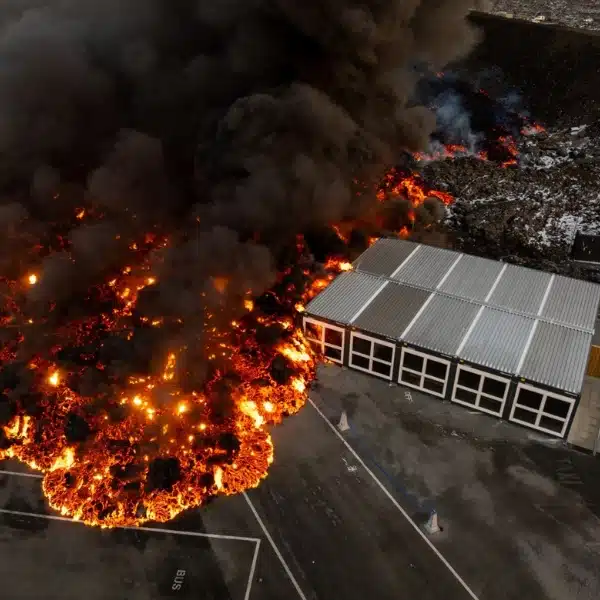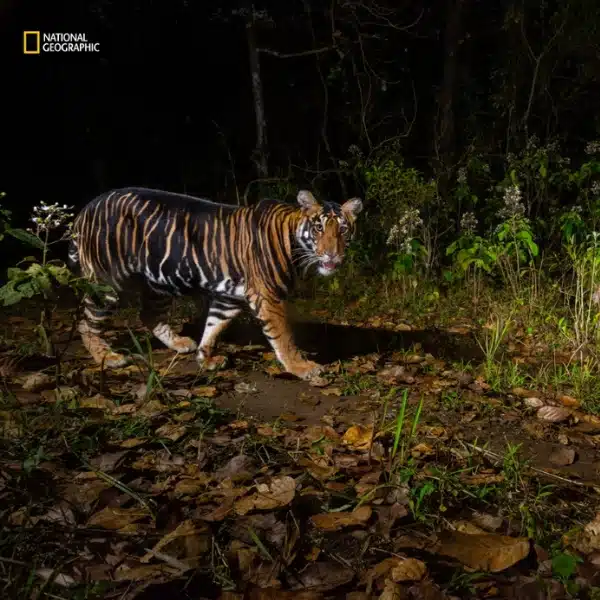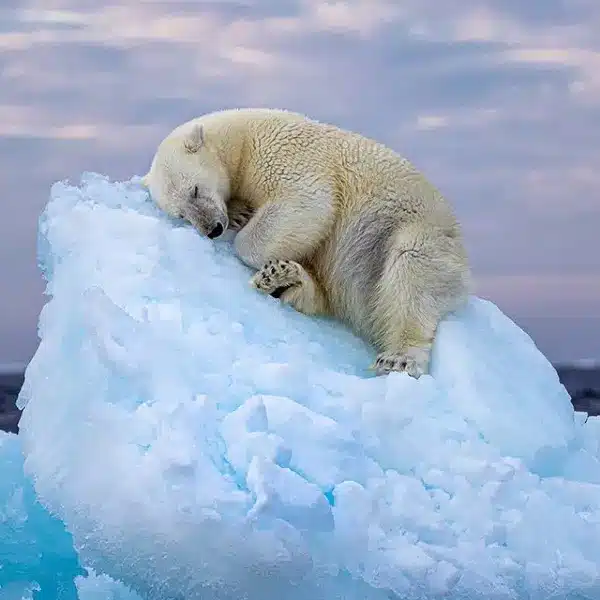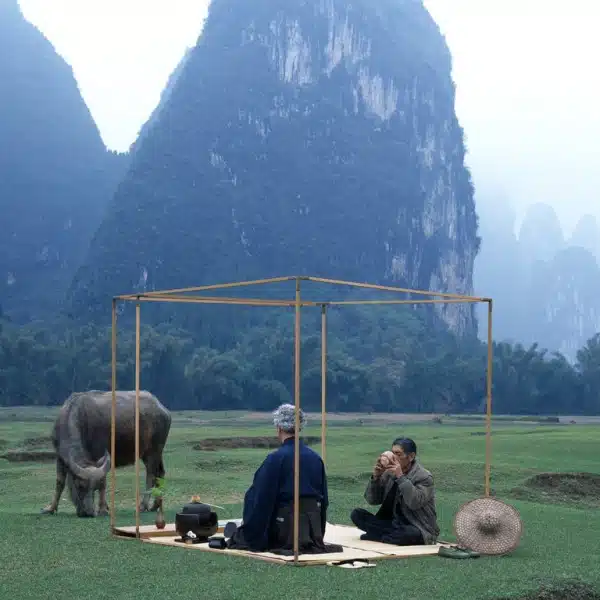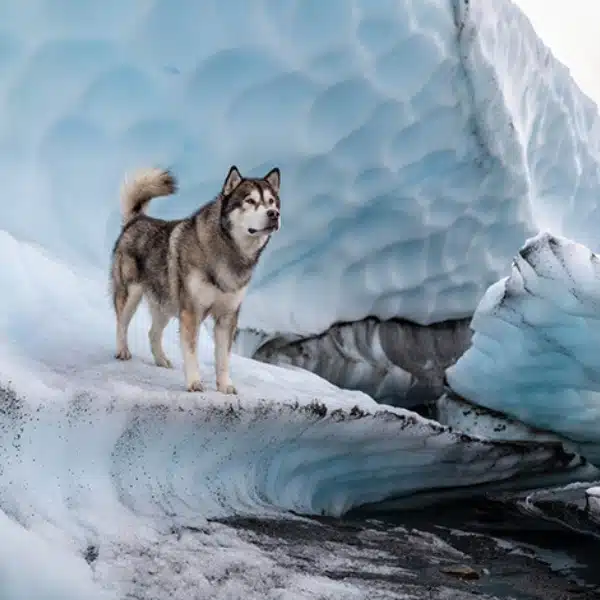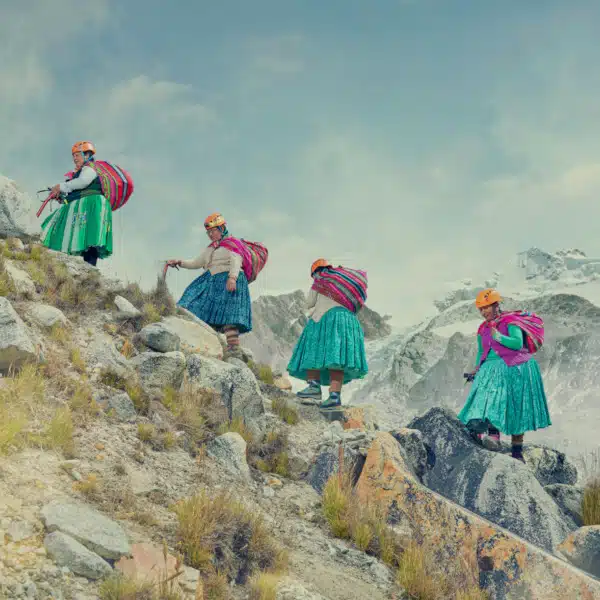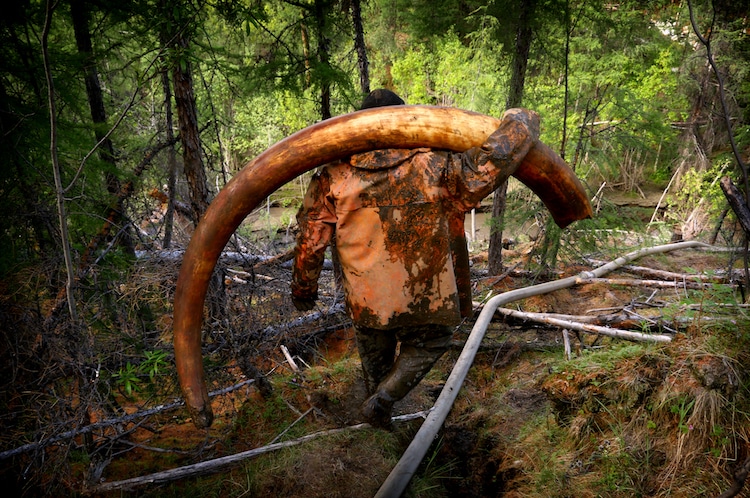
Photo: Amos Chapple/RFE/RL
New Zealand-born photographer Amos Chapple, a photojournalist for Radio Free Europe / Radio Liberty, works primarily in the former Soviet Union. From photographing the coldest city in the world to enduring a harrowing journey with ice road truckers, he's not afraid to dive into the unknown for a story. His most recent piece sees him camping out with mammoth tusk hunters in Siberia, shedding light on a practice that is not only dangerous, but negatively impacting the environment.
As China cracks down on the elephant ivory market, the so-called “ethical” ivory from mammoths are feeding the hole in the market. In a part of Siberia, five hours from the nearest town, year-round permafrost hold perfectly preserved mammoth skeletons. Now, each summer, mammoth hunters take out loans to fund risky expeditions in the hopes of striking it rich. A 65-kilogram (143-pound) tusk found while Chapple was on site fetched $34,000, a fortune for these men who have families to feed.
But there is a dark side. The jets of water used to pound away at the permafrost create mud that fills the river, killing off wildlife. And, so far from civilization, safety precautions are non-existent. Read Chapple's full story, The Mammoth Pirates, on RFE/RL and then continue on for our exclusive interview with the photojournalist.
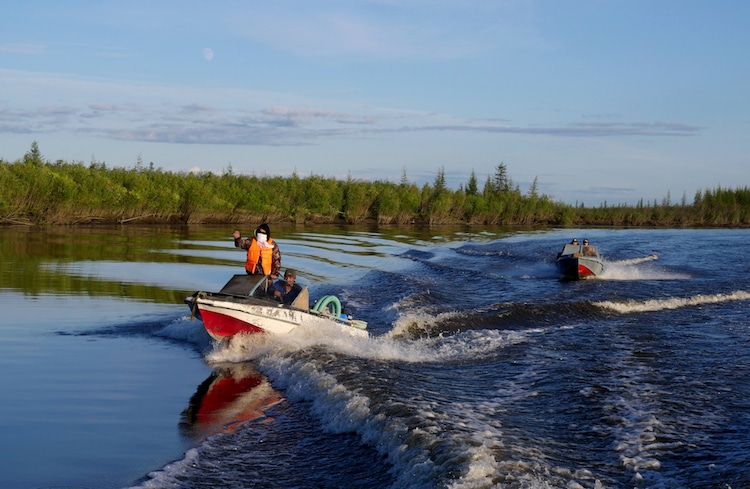
Photo: Amos Chapple/RFE/RL
How did you first hear about the practice of hunting for mammoth tusks?
While shooting this story, about truckers risking their lives on Siberia’s Ice highway, I learned that when the ice road melted away, a lot of the men went into the wilderness to hunt for tusks.
How long did you spend with the hunters out in the field?
Three weeks. The first week I hardly picked up my camera, I was just doing chores around the camp until people got used to an outsider being around.
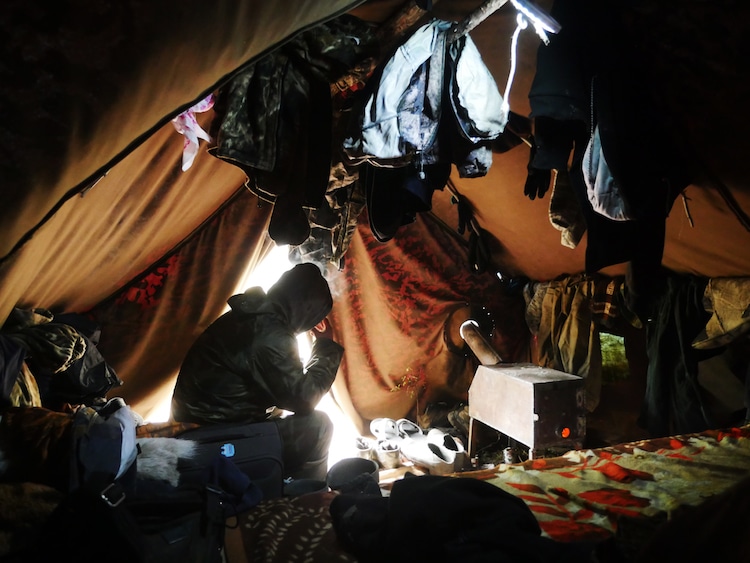
Photo: Amos Chapple/RFE/RL
How were you received by them and how were you able to bond and gain their trust?
The group I was with knew I was a journalist, but I’d paid them to house and feed me so they were ok with me being there. Photographing the other brigades was tricky—my guys told me I should say I was a paleontologist, so that’s what I did whenever I was around some of the other brigades.
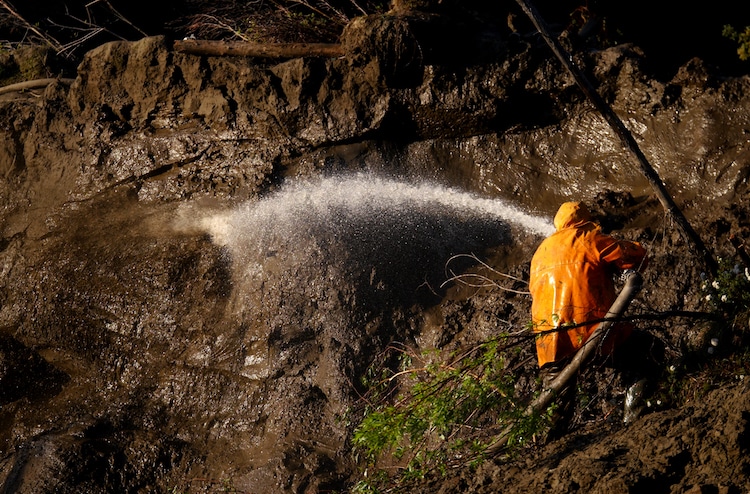
Photo: Amos Chapple/RFE/RL
One of the paleontologists you spoke with mentions the exploitation that the men face, given that most of them will come away empty handed. Did you get the feeling they were aware of this?
Yeah, there’s a lot at stake. In this region of the world though, any kind of falling out with other people would be a disaster since you’re all stuck in one village. It was amazing to watch the skill at which these guys were able to iron out disagreements—it was all done with humor and apparent goodwill.
The themes, like whether or not another brigade could set up their operations next to yours, were deadly serious—people’s kids might go hungry if their expedition failed—but it was all negotiated in a teasing, cheeky way.
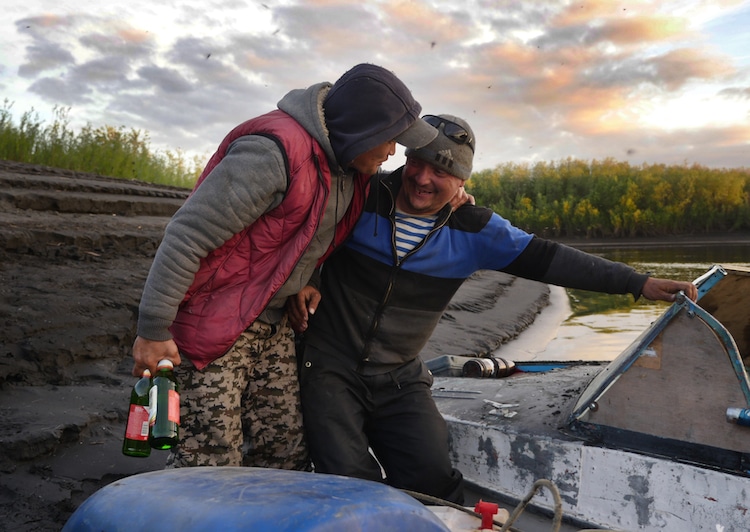
Photo: Amos Chapple/RFE/RL
Drinking is obviously something that is prevalent among the hunters. Can you speak a little bit about the drinking culture you experienced there?
It was simple —if there was alcohol in the camp it would be drunk until it was gone. Even if, as happened in our brigade, a man nearly drowned after crashing his boat, the drinking would just keep going until the last drop was gone.
I’d taken four giant 1-litre cans of beer with me, with the plan that I would break them out if our brigade hit a tusk. The second night in the camp, after all the vodka had been drunk, somehow one of the guys found the cans while I was away from the tent—it was gone by the morning. Every trip back to the town, which happened about once every three weeks, would be followed by a drinking binge which lasted a day and a night. Then there would be a full day and night of the drinkers sleeping it off, then on the third day, everyone would get back to work.
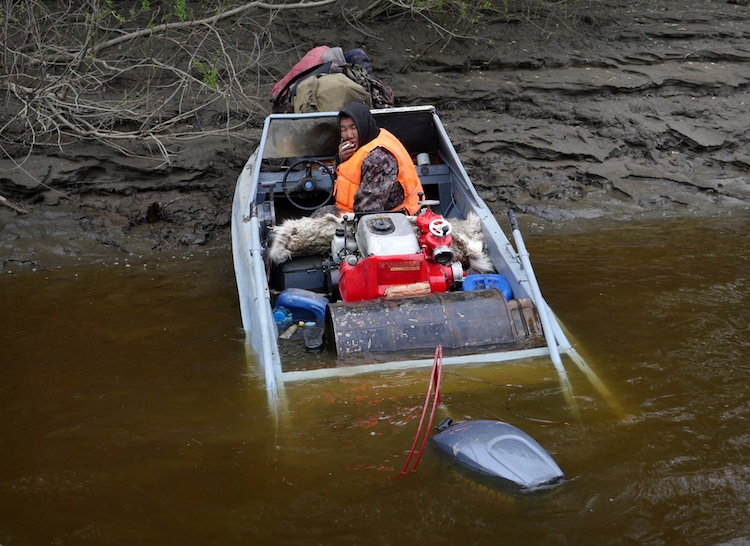
Photo: Amos Chapple/RFE/RL
Given that so many of the men ran into issues when they drank, like crashing boats, did you have any sense that they themselves saw it as a problem?
It was interesting to see the attitude towards drinking there. In effect, it’s the same attitude we have to someone getting sick in our culture. Let's say you have a deadline to meet, but then you get the flu and fail to complete your task—it’s a bummer but hey, you were sick!
That was a little like the approach out there with drinking. The guy who crashed the boat sunk a lot of valuable equipment, including my generator which I needed to charge my batteries. When I let someone know I was pissed about it, he was like “well yeah, but he was drunk.” It was somehow a valid excuse for f****ing up!
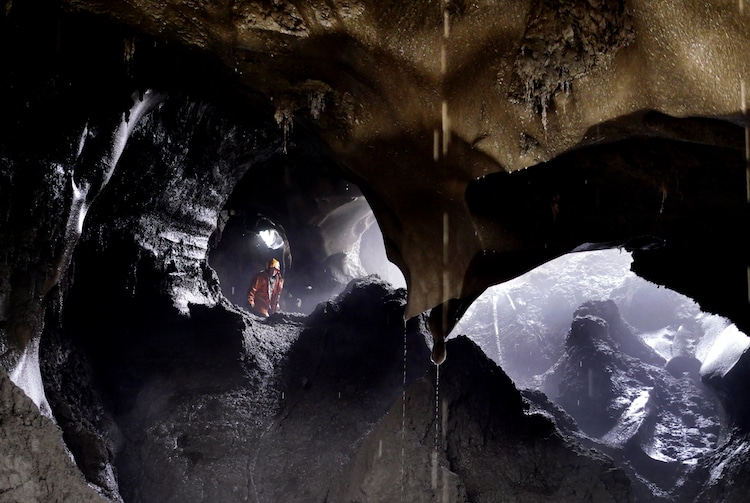
Photo: Amos Chapple/RFE/RL
Obviously, there is quite a bit of danger involved in this activity. Did you ever feel in danger yourself? Did you see the men taking any safety precautions at all?
Yes, it was very dangerous working underground. All through the night, you could hear the sound of mud falling and slopping onto the ground below. I remember watching one tusker walking under a big overhang which would have weighed as much as a tank. A day or two later the entire overhang collapsed overnight.
One of the tuskers the year before I was there had a piece of earth fall from the roof of a tunnel onto his leg—he was injured so badly his leg was amputated. I always tried to limit my time underground as much as I could.
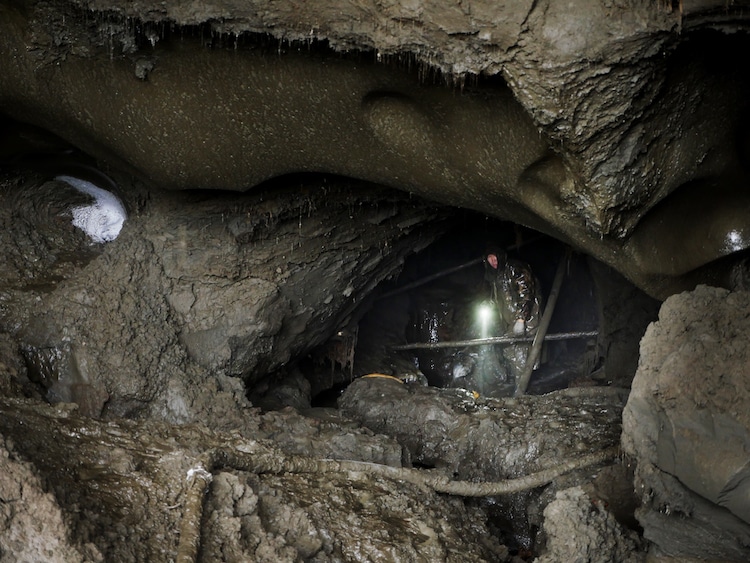
Photo: Amos Chapple/RFE/RL
Once, there was a nightmarish situation when I was inside a cavern, and standing in thick, gluey mud, then I heard a slop of a mud fall behind me, as mud fell from the roof, then another two in quick succession. As I turned to run out, I realized my feet were locked in the mud and wouldn’t move. I fell over backward into the mud then had to slowly extricate myself while I was panicking about the roof coming down on top of me.
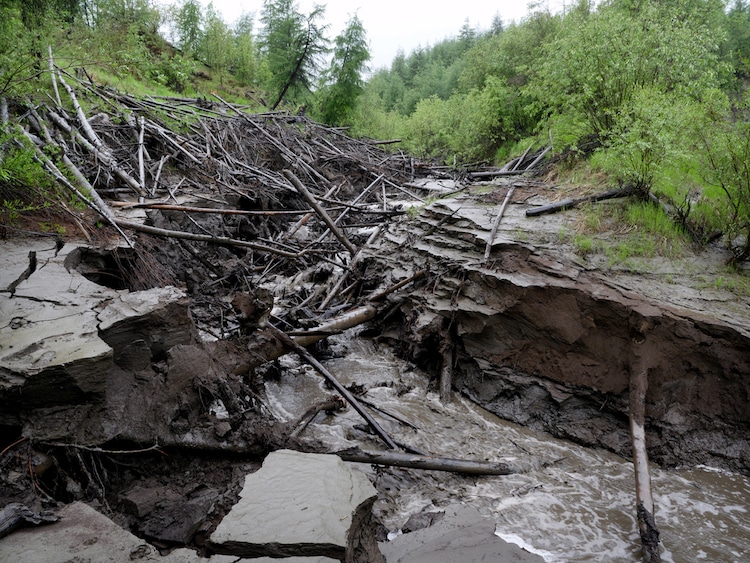
Photo: Amos Chapple/RFE/RL
Were you able to see firsthand any tangible environmental effects that the mammoth hunt has?
The men don’t even take fishing rods to this river anymore. It should be one of the most pristine places on earth, but there’s now no life in the river.
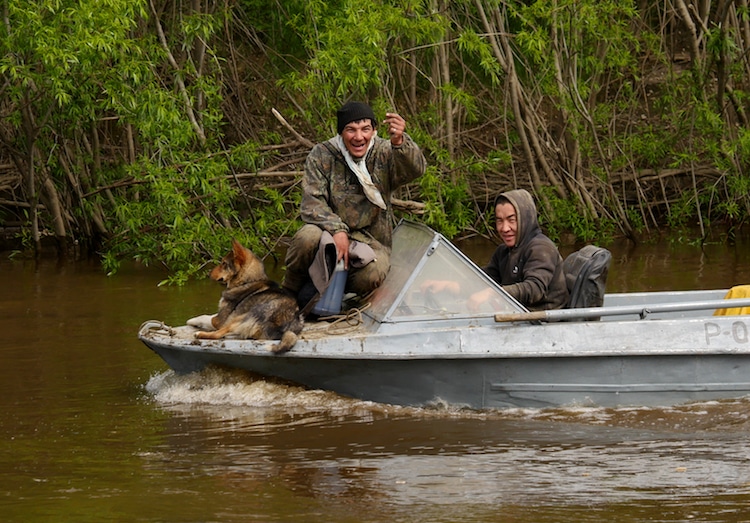
Photo: Amos Chapple/RFE/RL
Several of the men seemed to realize that what they were doing wasn’t right. Can you give us a sense of the moral struggle you felt any of them going through?
There was a strange dichotomy out there—the Yakutians have a lot of pagan traditions which revere the landscape, but while they will show their respect to nature with different rituals and offerings, they will destroy it with trash and hydraulic mining. I remember watching a Yakutian guy making an offering of a small pie and pushing it out into the river, then literally with his other hand, tossing an empty vodka bottle up into the forest.
Photojournalist Amos Chapple spent three weeks shadowing mammoth tusk hunters in Siberia on the condition that he wouldn't reveal their names or exact locations. Read his full story, The Mammoth Pirates, on RFE/RL.
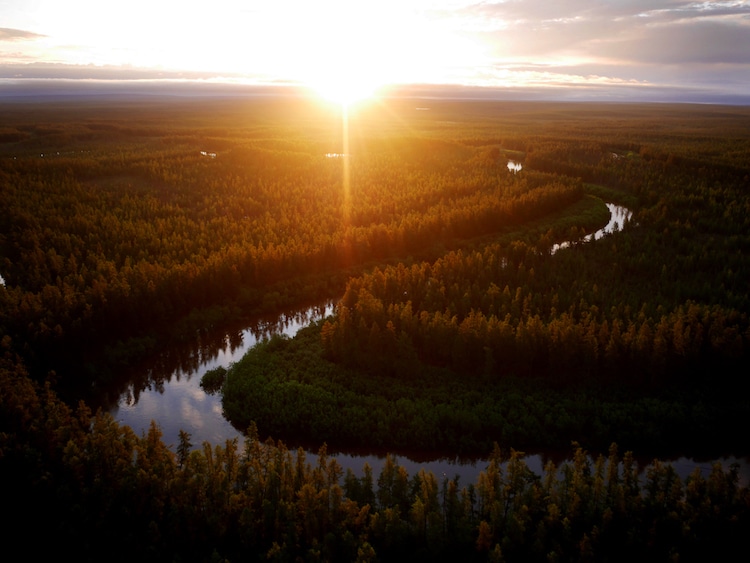
Photo: Amos Chapple/RFE/RL
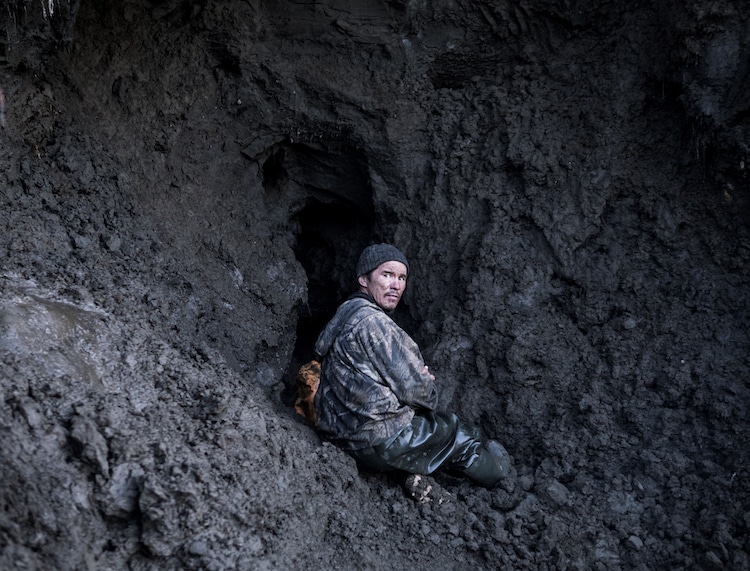
Photo: Amos Chapple/RFE/RL
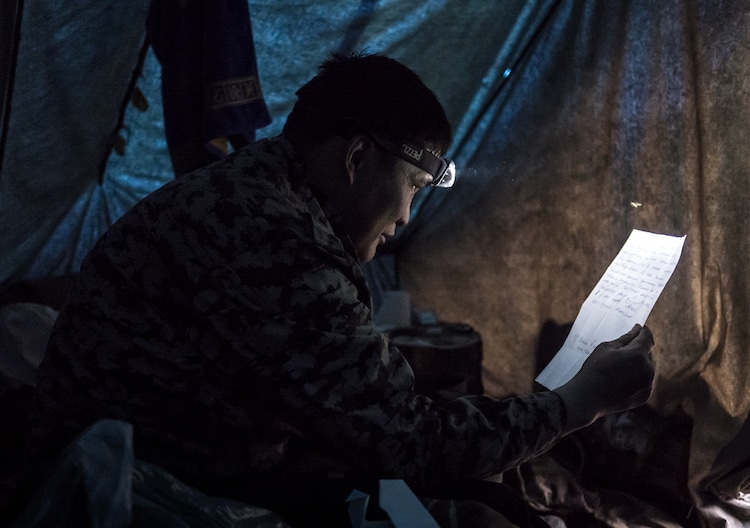
Photo: Amos Chapple/RFE/RL
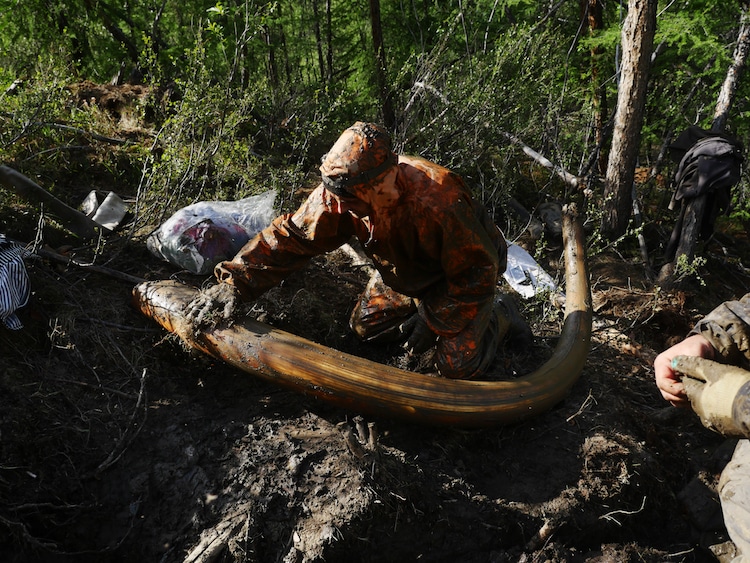
Photo: Amos Chapple/RFE/RL
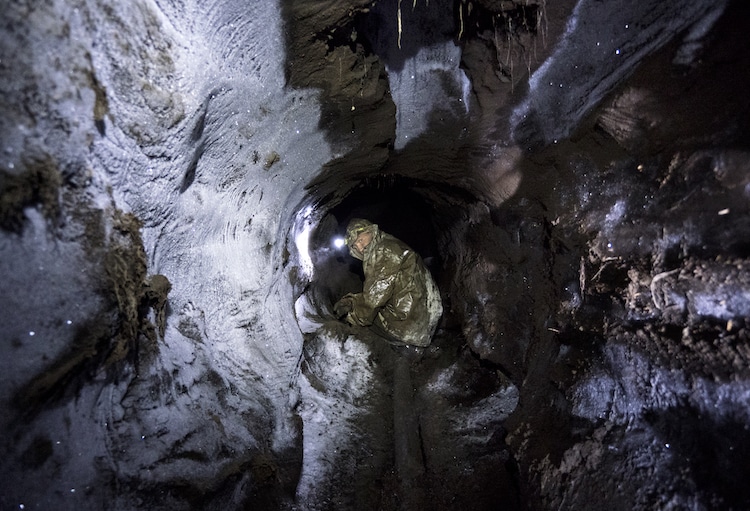
Photo: Amos Chapple/RFE/RL
Amos Chapple: Website | Facebook
My Modern Met granted permission to use photos by Amos Chapple.
Related Articles:
Fascinating Photos of Yakutsk and Oymyakon, the Coldest Village in the World
Photographer Spends 6 Months Traveling Alone to Photograph Siberia’s Indigenous People
India’s Fascinating Tree Root Bridges Grow Stronger Every Year
Ice Rider Crosses World’s Oldest Lake
Stunning Photos of the Coldest City in the World











































































